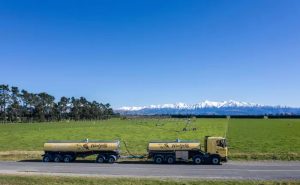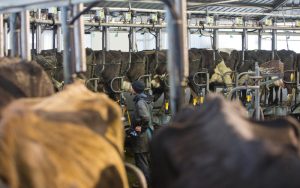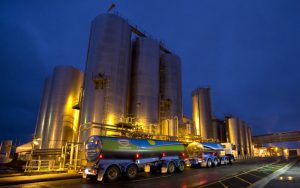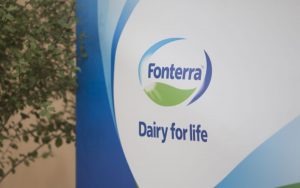
The Government appears to be unmoved by those concerns, however, and says it does not plan to look into the potential environmental impacts before the law change is whisked through Parliament.
An amendment bill introduced to Parliament on Tuesday would allow Fonterra to change its capital structure, including loosening capital requirements for its farmer-shareholders. Doing so would make it easier for new farmers to join the co-op, and incentivise existing farmers to stay, entrenching its already dominant market position.
It would also close off a connection between the Fonterra shares traded between farmers and those traded in an external unit fund, essentially increasing farmer control over the co-op.
The changes, supported by the vast majority of Fonterra farmers, are a response to an expected decline in national milk production, largely due to environmental regulations.
While Fonterra could restructure without a law change, doing so would risk legal challenge. The Government has agreed to amend the law for Fonterra, whilst adding greater oversight of Fonterra’s milk price-setting arrangements.
“Long-term sustainability, fair pricing in the domestic market and value creation in New Zealand’s dairy industry is part of the balance we are aiming for,” Minister of Agriculture Damien O’Connor said on Tuesday.
“The past two decades have seen new entrants bring competitive innovation to the industry and we want to see that continue.
“Our dairy industry’s continued success is vital to both New Zealand’s ongoing economic recovery, and protecting New Zealanders from the sharp edges of a global economic downturn.”
Some environmentalists and officials have pointed to what could be unintended environmental consequences that would undermine the Government’s policies on fighting climate change and reversing freshwater pollution.
Because Fonterra’s footprint is so large – it processes about 80% of New Zealand’s milk – even a modest incentive for its farmers to increase production would risk increasing the size of the national dairy herd, with ensuing impacts on the climate and freshwater.
A Cabinet paper for the Bill noted this concern, saying it was “likely to support an increase in emissions”. No climate impact analysis was undertaken, however, because the climate effects were deemed indirect and difficult to quantify.
Any increase in climate pollution would be “a secondary and marginal impact that will likely be more than offset by the Government’s current and planned policies, as well as Fonterra’s own investment intentions”, the Cabinet paper concluded. Fonterra has pledged to spend around $1b on sustainability initiatives by 2030.
The bill has drawn the scrutiny of the Parliamentary Commissioner for the Environment (PCE), Simon Upton, who has called for more analysis of the environmental consequences.
“I am concerned [the changes] hold the potential for negative environmental consequences and these need to be properly understood before any amendment proceeds,” he wrote in a letter to O’Connor.
“The environmental risks lie in the potential for the changes to increase overall on-farm profitability, thus incentivising an increase to the national dairy herd size. A larger dairy herd would increase greenhouse gas emissions and put more pressure on freshwater resources.”
The sheer size of the current dairy herd meant even small increases in its footprint “could have significant negative environmental effects”, Upton said.
He did not accept the Cabinet paper’s logic that “current and planned policies” would offset any increase in emissions.
“Even if that were true, the emissions reductions from ‘current and planned policies’ would happen regardless of whether [the law] is amended,” he wrote.
“Put simply, the increase of emissions would negate currently planned emissions reductions. Fonterra would be doing less than it could and shifting the burden for emissions reductions to other sectors of the economy.”
He recommended O’Connor direct officials to prepare a climate impact assessment, and also undertake a separate freshwater assessment, which should be publicly released before the amendment bill proceeds. Even if they did not change the outcome, he said, they would provide important information to MPs to understand the consequences of their decisions: “This is about transparency.”
The plea appears to have been rejected.
In a response to Upton’s letter, O’Connor acknowledged his concerns, but argued the environmental effects would be too difficult to model in advance.
“The Government is aware that Fonterra’s capital restructure might have flow-on impacts on greenhouse gas emissions and freshwater quality,” he wrote.
“However, the magnitude and likelihood of any impacts are highly uncertain. They depend on a range of factors, interactions, and other variables that in combination may, at any point in time, compound or offset each other.”
Any modelling would require assumptions to be made about many variables – among them global demand for dairy products, social licence, and dairy sector investments – each of which had considerable uncertainty.
“I am not convinced the results of any such modelling would be robust enough to separate out (and attribute causality to) the potential effects of Fonterra’s capital restructure on the environment with any certainty,” O’Connor wrote.
O’Connor noted the amendment would increase transparency on Fonterra’s milk price-setting arrangements, and said the Government had allocated nearly $339m towards developing technologies to reduce agricultural emissions. The law would also be periodically reviewed.
The amendment will likely have its first reading in the coming weeks, with a select committee process later in the year.
























